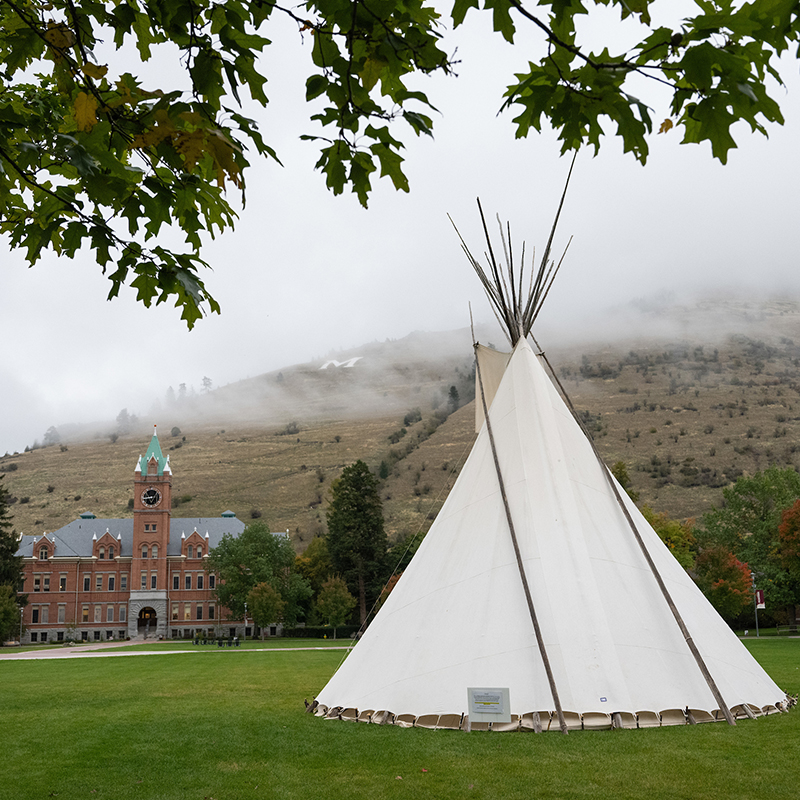AIGPI Advisory Council
AIGPI’s Advisory Council is comprised of a broad range of stakeholders and thought leaders who act in an advisory capacity and ultimately help guide AIGPI’s research agenda. For continuity and to ensure AIGPI’s work is relevant and responsive to the needs of tribal communities, nearly half of the Council memberships are linked directly to specific tribal stakeholder seats (and not necessarily to the individuals holding that seat at the moment). Current members include:
Gerald Gray
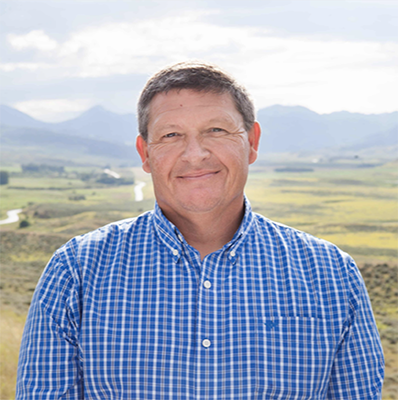
Permanent Seat: Chair, Board of Directors, Rocky Mountain Tribal Leaders Council
Gerald Gray (Little Shell Chippewa), Chairman, Little Shell Tribe and Vice President at G&G Advertising
Gerald is currently in his second term as Chairman of the Little Shell Tribe of Chippewa Indians of Montana. Chairman Gray led his Tribe’s efforts to restore its federal recognition, which was achieved on December 20, 2020 when the Little Shell Restoration Act was signed into law. The Little Shell Tribe is now the 574th federally recognized tribe in the United States. Chairman Gray also has twenty plus years of experience in market research and media development at the firm G&G. He is also the Chairman of the Rocky Mountain Tribal Leaders Council, representing eleven tribal governments in the Rocky Mountain Region. Before entering the world of marketing, he was a teacher at the Box Elder Public School System in Montana. Chairman Gray holds a Bachelor of Science degree in Education from the University of Montana Western.
Cory Sangrey-Billy
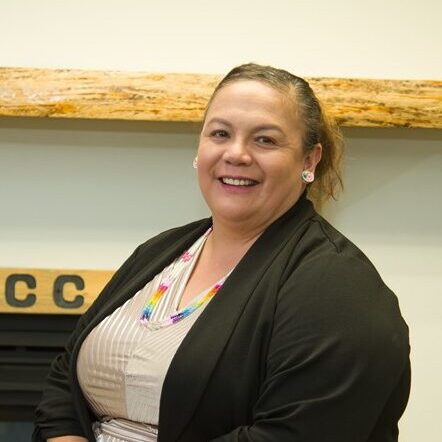
Permanent Seat: Chair, Montana Tribal College Presidents Association
Cory Sangrey-Billy (Chippewa Cree), President, Stone Child College
Mrs. Cory Sangrey-Billy, Chief Thunderbird Woman, is an enrolled member of the Chippewa Cree Tribe. Ms. Sangrey-Billy has been serving Stone Child College (SCC) since 2006, first as the Dean of Academics; in 2018 she became President. Her 20+ years of experience working in higher education at the Tribal College level began in 2001 when she was the Native American Career and Techinical Education Program Coordinator. Striving to build positive relationships for SCC, Ms. Sangrey-Billy actively engages and maintains connections with the Chippewa Cree Tribal Business Committee, Tribal Departments, U.S. Government agencies, area high schools, accreditation associations, as well as SCC's-affiliated organizations. Her work with community partners and institutions to develop and offer educational programs that align with the community needs is evidenced in her contributions that led to the creation of SCC's bachelor's degrees in Elementary Education and Early Childhood Education. Ms. Sangrey-Billy continues to strive toward preservation of the Chippewa Cree language and culture in her working relationships and professional goals.
Cory enjoys spending time with her family: husband Cameron, son Payson, and daughter Presleigh. She is a MSU-Northern alumna and received her Master's of Science degree from the University of Great Falls.
Misty Kuhl

Permanent Seat: Director, Montana Governor’s Office of Indian Affairs
Misty Kuhl (A’aniiih, Fort Belknap Indian Community)
Misty was appointed by Governor Greg Gianforte to serve on his cabinet as State Director of Indian Affairs effective January 2021. Formerly, Misty served as the Director of Native American Outreach at Rocky Mountain College and has decades of experience working with Native communities in areas such as business and leadership. She also previously served as a Director with the Native American Alliance Foundation and as the Tribal Liaison and Field Representative for Gianforte during his time in Congress. Misty holds a degree in Human Services from Montana State University-Billings.
Kekek Stark
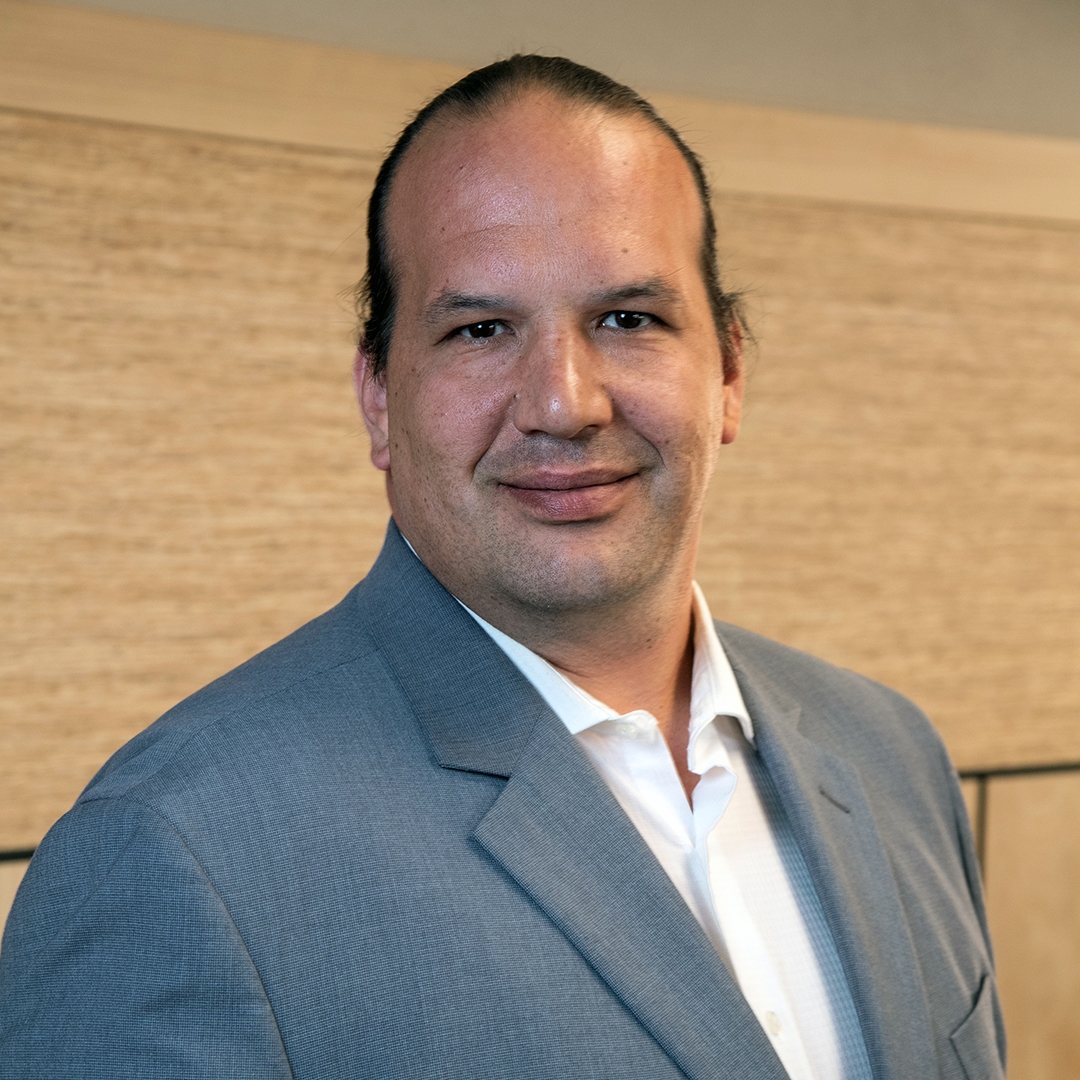
Permanent Seat: Director, Margery Hunter Brown Indian Law Clinic
Kekek Stark (Turtle Mountain Ojibwe)
Kekek Stark is a Professor of Law with the Alexander Blewitt III School of Law at the University of Montana. In this capacity he is the Co-Director of the Indian Law Program and the Margery Hunter Brown Indian Law Clinic; and has served as the Co-Director for the American Indian Governance and Policy Institute. He is a Turtle Mountain Ojibwe and member of the Bizhiw (Lynx) Clan. Kekek is a former president of the Minnesota American Indian Bar Association, a forum Bush Foundation Leadership Fellow and alumnus of Hamline University School of Law. Kekek worked as an assistant professor with the American Indian Studies Department at the University of Minnesota – Duluth as well as an adjunct faculty member at several institutions. In addition to his teaching experience, Kekek served as the Attorney General for the Lac Courte Oreilles Band of Lake Superior Chippewa Indians, as a policy analyst in the Division of Intergovernmental Affairs for the Great Lakes Indian Fish and Wildlife Commission, and as a policy analyst for the Bad River Band of Lake Superior Tribe of Chippewa Indians. As a practitioner of Indigenous law, Kekek has firsthand experience in training students in how to work productively with Indigenous principles and procedures. Along the way, he has helped build institutions grounded in Anishinaabe law and has helped students and communities forge better relations between Indigenous and non-Indigenous institutions and peoples, strengthening tribal sovereignty
Dorothy Dupree
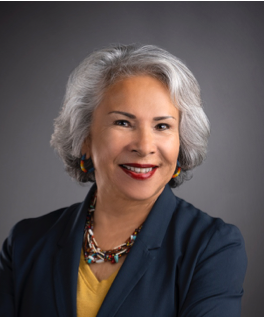
Dorothy Dupree (Fort Peck Assiniboine and Sioux Tribes), Past Regional Administrator and Senior Policy Advisor
Ms. Dupree, a member of the Fort Peck Assiniboine and Sioux Tribes, has an extensive background in health care administration, health care policy, quality of care standards, and Tribal Self-Determination and Governance. She served for ten years as the Senior Policy Advisor, Tribal Health, to the Centers for Medicare and Medicaid Services (CMS). Ms. Dupree also served as an Indian Health Service Director in four areas: Albuquerque, Tucson, Pheonix, and Billings. She has a Master's in Business Administration with an emphasis in Finance, Economics, and Organizational Development. In her retirement, she continues working with the Fort Peck Assiniboine and Sioux Tribes' Health Promotion Disease Prevention Program, the Rocky Mountain Tribal Leaders Council's Tribal Health Subcommittee, is Vice Chair of the Elk River Intertribal Council (Billings), and serves in several advisory capacities to Billings business entities and the City Council.
Vernon Grant
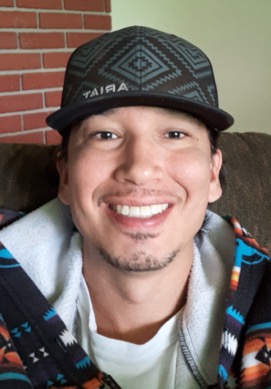
Vernon Grant (Blackfeet) - Assistant Research Professor, Center for American Indian and Rural Health Equity, Montana State University
Vernon holds an interdisciplinary PhD in Exercise Science and Community Health from the University of Montana. Dr. Grant was born and raised in Browning, Montana and is an enrolled member of the Blackfeet Nation (Amp-ska-pi-pikuni). After earning his PhD, Dr. Grant transitioned as a primary care research fellow to the University of Wisconsin-Madison’s Department of Family Medicine and Community Health where he was a member of the Healthy Children Strong Families research team working on a multi-modal obesity and diabetes intervention (R01) that focused on children age 2-5 and their caregivers in five American Indian communities nationwide. Dr. Grant is currently an Assistant Research Professor in the Center for American Indian and Rural Health Equity at Montana State University where he has conducted several small studies using accelerometry to assess physical activity and sleep patterns in different American Indian populations. He recently obtained a K01 grant from the National Institutes of Health, National Heart, Lung, and Blood Institute to study sleep and implement a sleep intervention in Blackfeet families with K-1st grade children. He is also part of the American Indian Youth Energy and Mental Health Balance group that recently obtained a $2.5 million grant (R01) to enhance mental health, physical activity, diet, and sleep choices in American Indian youth.
Michael Lipsky
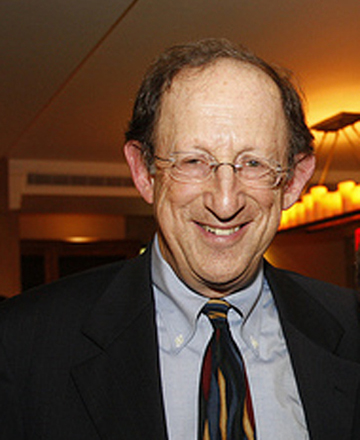
Michael Lipsky - Distinguished Senior Fellow at Demos, past program officer at the Ford Foundation and retired Professor of Political Science at MIT
Michael’s work focuses on the consequences of delivering public services through police officers, teachers, welfare workers and other ‘street level bureaucrats’ who interact directly with citizens in the course of their jobs. His practical experiences in public affairs includes a twelve-year stint at the Ford Foundation, where he advanced an agenda focused on improving governance and public policy delivery, primarily in the United States. While at Ford he helped establish the State Priorities Partnership, the network of groups now in 40 states that monitor state fiscal policies to support the interests of low-income people, and the International Budget Partnership (IBP), an organization that promotes transparency and accountability in fiscal policies in countries around the world. Lipsky currently serves as the Chair of the IBP board, and on the Board of Governors of Honoring Nations, the Harvard University project that identifies and promotes the accomplishments of Native American governments.
Casey Winn Lozar

Casey Winn Lozar (Confederated Salish and Kootenai Tribes), Vice President, Center for Indian Country Development
Mr. Lozar is the Vice President, Director of the Center for Indian Country Development (CICD) at the Federal Reserve Bank of Minneapolis where he is responsible for leading all aspects of the CICD’s work including identifying research and policy priorities and increasing CICD’s visibility, impact, and relevance. Based at the Helena Branch, Mr. Lozar, an enrolled member of the Confederated Salish and Kootenai Tribes, is also deeply involved in the Bank’s early childhood development work in Montana. Before assuming leadership of the CICD, Mr. Lozar was assistant vice president/outreach executive in the Bank’s department of Public Affairs, and the leader of our Helena Branch. Prior to joining the Minneapolis Fed in 2018, Mr. Lozar served in economic development and higher education roles for the State of Montana. Additionally, he held executive leadership positions in national Native American nonprofits, including the American Indian College Fund and the Notah Begay III Foundation. Mr. Lozar received degrees from Dartmouth College and Harvard University and an MBA from the University of Colorado-Denver. He serves as the chair of the board of regents of the Montana University System.
Gail Small
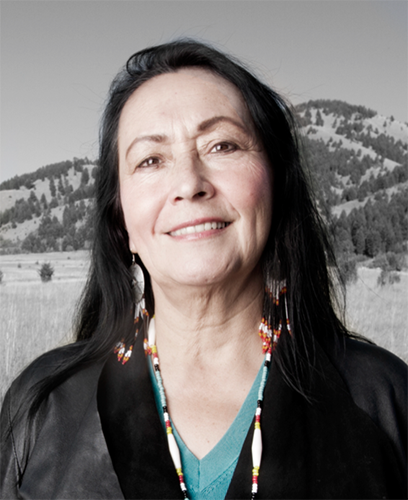
Gail Small (Northern Cheyenne) – Executive Director, Native Action and Program Director, Spirit Aligned
Gail is a member of the Northern Cheyenne Tribe, the Tsitsistas So’taeo’o, from Lame Deer, Montana. Her Cheyenne name is Head Chief Woman. She graduated from the University of Oregon School of Law and the University of Montana, but credits growing up amongst a family of matriarchs on her homeland as her greatest education. She is a former elected member of the Northern Cheyenne Tribal Council and Board Chair of Chief Dull Knife College. She has served as a teacher and professor in reservation schools, tribal colleges, and at various universities. In 2018, Gail was inducted into the Montana Outdoor Hall of Fame for her lifelong efforts to protect the environmental homelands of Indian Country. Gail has testified before Congressional Committees and international tribunals, and served as a leadership fellow with the WK Kellogg Foundation, Rockefeller, Reginald Heber Smith Legal Aid Fellow, and the Leopold International Leadership Program. Gail was the founding Director of the non-profit Native Action for over twenty years, successfully achieving national precedents in justice, policy and law. Head Chief Woman currently serves as Program Director of the Spirit Aligned Leadership Program, a transformative elder indigenous women’s leadership program that lifts up indigenous knowledge to address contemporary global challenges.
Tressie White
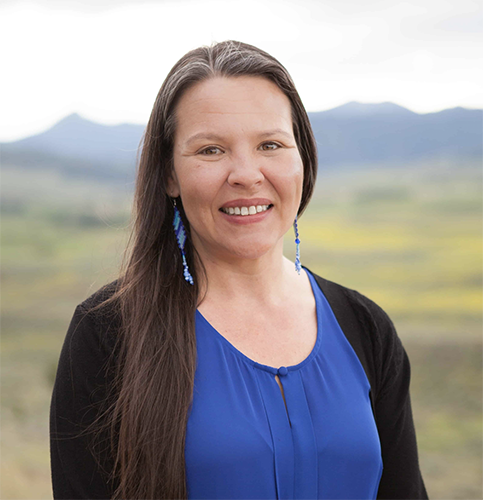
Tressie White (Turtle Mountain Chippewa/Rocky Boy Chippewa Cree) – Program Director for the Montana Healthcare Foundation and past Director of the Helena Indian Alliance and the Wakina Sky Multicultural After School Program
Tressie is a Program Director at the Montana Healthcare Foundation where she directs American Indian health programming with calm leadership and tireless dedication to improving health and reducing disparities for American Indian people in Montana. Tressie and her team provide funding, programming support, strategic guidance, and technical assistance for all of Montana Healthcare Foundation’s grantees participating in the American Indian Health focus area and initiatives and the Meadowlark Initiative. Before joining the Montana Healthcare Foundation’s team in 2017, Tressie served as executive director of the Helena Indian Alliance, and the director of the Wakina Sky Multicultural After School Program. Tressie is an enrolled member of the Turtle Mountain Band of Chippewa Indians and a descendant of the Rocky Boy Chippewa Cree Tribe. She currently lives in Helena and enjoys spending time with her three children.
Patrick Yawakie
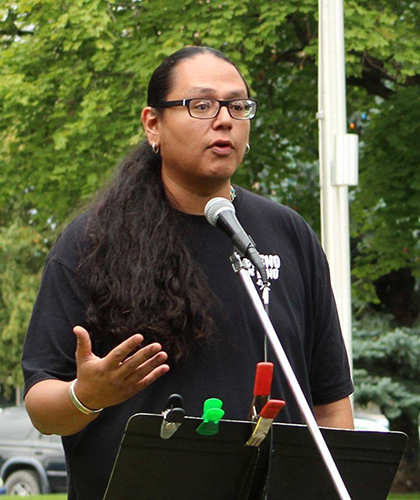
Patrick Yawakie (Zuni Pueblo/Turtle Mountain Anishinaabe/White Bear Nakota) – Political Director at Indigenous Vote
Patrick is an enrolled member of the Zuni Pueblo in New Mexico and is also Turtle Mountain Anishinaabe and White Bear Nakota, as well as a husband and father of four children. He currently resides on the Flathead Reservation and recently graduated in the first-ever cohort of the Tribal Governance and Administration Bachelor degree program at Salish Kootenai College. His educational experience has allowed him to engage in Native Get-Out-the-Vote and Food Sovereignty efforts as a community organizer and member of various community non-profit boards and action groups. His primary focuses include treaty rights, tribal sovereignty, self-determination, economic development, natural resource conservation, broadband development, Native GOTV and voting rights. Patrick currently works as the Political Director at Indigenous Vote.
Jon Swan

Jon Swan (Chippewa Cree), Managing Director & Partner, Boston Consulting Group
Jon is from Rocky Boy and Havre, and is enrolled with the Chippewa Cree Tribe of the Rocky Boy Indian Reservation. He is a 2003 University of Montana (UM) alum, graduating with his BS in Finance and Economics. In addition to being an active member of the American Indian Business Leaders (serving as President his sophomore year), Jon also served as the ASUM President (and Business Manager, as well as a two-term Senator), and a 2003 Truman Scholar. After graduation, Jon joined the founding team of Native American Bank, NA (NAB). The Chippewa Cree Tribe was a founding investor, and his mentor, Elouise Cobell, was credited with getting the idea into motion. NAB is a multi-tribally owned national bank (FDIC insured) that focuses on bringing financial products to Indian Country.
After helping start NAB, Jon matriculated to a joint-degree program at Harvard Business School (MBA) and the Harvard Kennedy School of Government (MPP). While there, Jon worked closely with Dr. Joe Kalt and his team at the Harvard Project on American Indian economic development. He helped support several efforts on good governance with an aim to improve political and economic sovereignty. His thesis on national banking regulations (and their inconsistent treatment of tribal rights) helped influence a stand-alone bill with the US Senate that eventually became part of the Dodd-Frank Act. After grad school, Jon joined Boston Consulting Group (BCG), where he is currently a Managing Director and Partner. He is a global leader for the firm in several areas related to supply chain and overall strategy. He also founded and leads Indigenous@BCG.
Jon and his wife, Robin live in the Boston suburbs with their four school-aged children.
